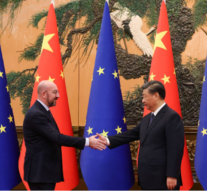
China-EU relations: competition and cooperation
Employment and Social Affairs 18 December 2022Estimated time of reading: ~ 3 minutes
China is set to overtake the European Union as the main consumer of Russian natural gas after the Power of Siberia 2 pipeline comes online by 2030. This is a major shift that inevitably will condition future relations, even between EU and China, while on the other hand Brussels is trying to get closer to Beijing as far as it is possible. “I believe in the power of dialogue”, said European Council President, Charles Michel, after meeting Chinese President Xi Jinping in Beijing on the first of December. “Both the EU and China have an interest in a rules-based world with the UN Charter at its core”, he added.
Michel recognized that China is the top trading partner in goods for the EU, “amounting to almost 2 billion euro every day”. But he also raised the issue of human rights, fundamental freedoms and the rights of minorities. After welcoming the readiness to resume the EU-China Human Rights Dialogue, “a format that has not convened for more than three years”, Michel highlighted that it will “allow us to focus on wider human rights policy issues and on individual cases”.
But Michel also set out the difficulties faced by EU companies and investors. These are summarized in two ongoing trade disputes between EU and China: Brussels, on 7th December, has requested the establishment of panels at the World Trade Organization in order to solve the issues. The first one concerns the legality of the trade restrictions that China has had in place against Lithuanian exports and EU exports containing Lithuanian content since December 2021. The EU Commission estimates that China cut trade from the Baltic country by 80 percent this year after Vilnius broke diplomatic custom last December and allowed a Taiwanese office in Lithuania to bear the name Taiwan (most countries use the term Chinese Taipei to avoid offending China, which considers Taiwan to be a part of its territory).
The second dispute concerns the legality of China restricting EU holders of high-tech patents from accessing EU courts to effectively protect and enforce their rights. In both cases, the Chinese measures are highly damaging to European businesses. The removal of these measures is considered by the EU in both the economic and strategic interest.
Written by: Valerio Palombaro







